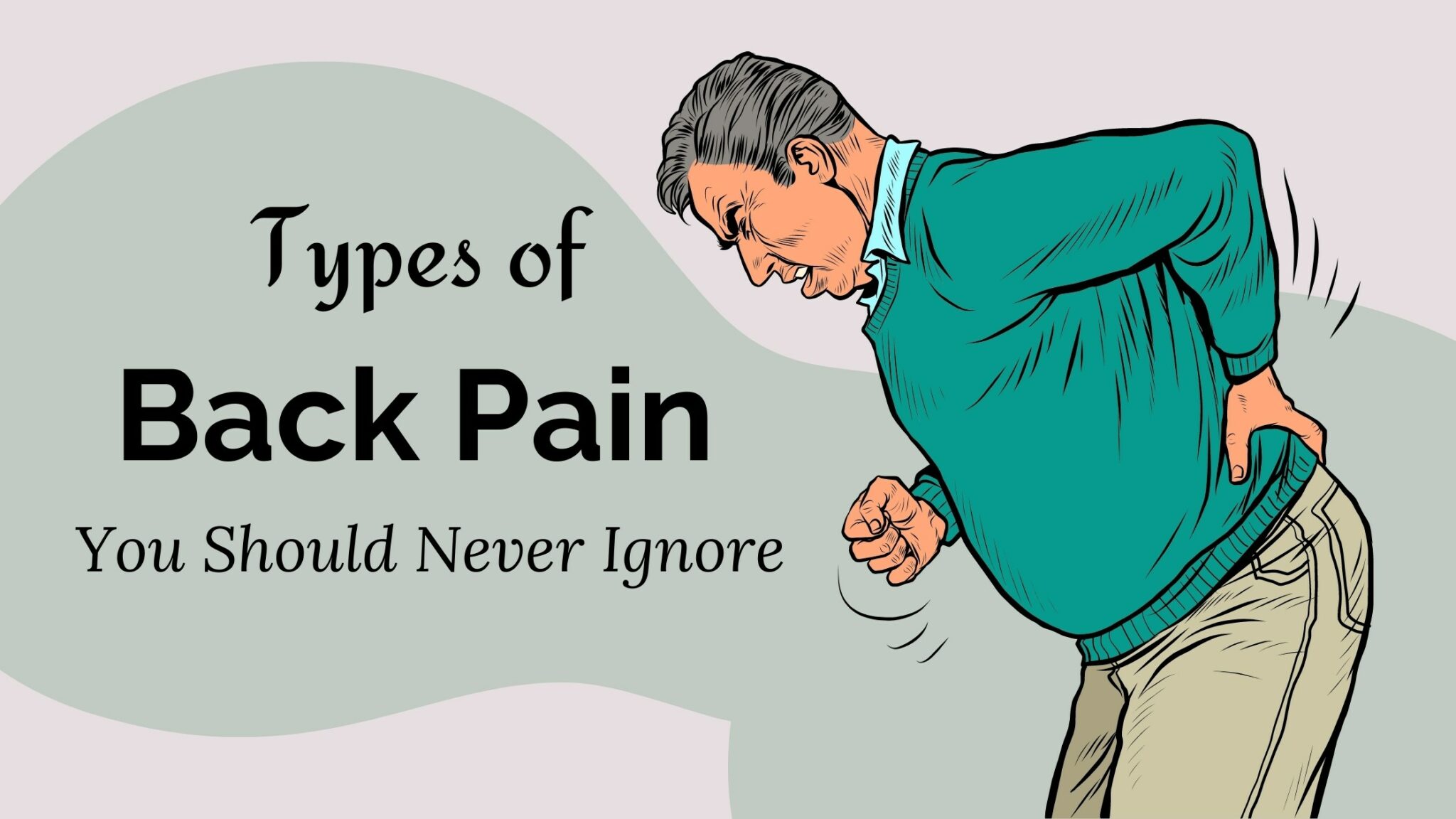5 Types of Back Pain You Should Never Ignore
Back pain is common, but some types can signal serious health issues. Sometimes, it’s due to job-related factors like sitting all day in an uncomfortable chair, heavy lifting, pushing, pulling, or twisting your back. Other times, it means something more serious is wrong. Here are five kinds of back pain that you should not ignore.

Sharp, Sudden Pain That Feels Like Electric Shocks
If you feel a sharp pain in your back that goes down to your legs, like an electric shock, it could be sciatica. This happens when a big nerve in your back, called the sciatic nerve, gets squeezed or hurt. It can feel like a burning or a shock and can hurt more when you move. It is important to see a doctor so it does not get worse.
Sciatica can be caused by a herniated disc, which means a part of the backbone is pressing on a nerve. A doctor can help you feel better with exercises, medicine, or sometimes surgery.
Constant, Dull Ache That Does Not Go Away
If your back hurts all the time, even with rest or medicine, it may be serious. This could indicate a chronic condition that needs medical attention, such as degenerative disc disease or another type of injury. Persistent pain like this often suggests that something could be wrong with your spine, and it is important to get it checked by a doctor.
Sometimes, this pain can mean arthritis of the spine or other problems that can get worse over time. If this pain does not go away, you should see a doctor to find out what is wrong and get the right help.
Pain With Numbness or Weakness in Legs
If your back pain makes your legs feel numb or weak, it is very serious. It might mean a nerve is being squeezed very hard. It could be from a herniated disc or even something like a spinal tumor. There is also a rare problem called cauda equina syndrome, which happens when nerves at the bottom of your spine get squeezed. This can make you feel pain, numbness, or have trouble going to the bathroom.
If you have trouble walking, weak legs, or numb feelings, you should call a doctor right away. If you wait too long, it could cause big problems that do not go away.
Back Pain That Worsens at Night
If your back hurts worse at night or keeps you awake, it could mean something more serious, like an infection or even cancer. Most back pain feels better with rest, but if it gets worse at night, you should see a doctor.
Sometimes, pain at night can mean there is an infection in the bones called osteomyelitis. It could also be from tumors pressing on the spine. If your back pain makes it hard to sleep and gets worse at night, see a doctor.
Back Pain With Fever or Unexplained Weight Loss
If your back pain comes with fever, chills, or weight loss, it could mean something serious, like an infection or even cancer. A fever with back pain might mean you have an infection in your spine, and losing weight without trying can be a sign of cancer.
If you have these signs, see a doctor right away. Finding out what is wrong early can help treat it better.
The Takeaway
Back pain is something we might want to ignore, but it is very important to listen to your body. If you have sharp pain, pain that will not go away, or pain that comes with other worrying signs, talk to a doctor.
Getting help quickly can help you feel better faster and stop any big problems. Do not ignore your back pain—your health is very important!
FAQs
1. When should I see a doctor for back pain?
If your back pain is severe, lasts more than a few weeks, or is accompanied by symptoms like fever, numbness, or weight loss, you should see a doctor. These could be signs of a more serious problem that requires medical attention.
2. Can back pain go away on its own?
Yes, some types of back pain, like those from muscle strain, can go away on their own with rest and over-the-counter pain relief. However, if the pain persists or gets worse, it is important to consult a doctor.
3. What are some common causes of back pain?
Muscle strain, poor posture, herniated discs, or conditions like arthritis can cause back pain. Sciatica and other nerve issues can also lead to significant back pain. Identifying the cause is key to finding the right treatment.
